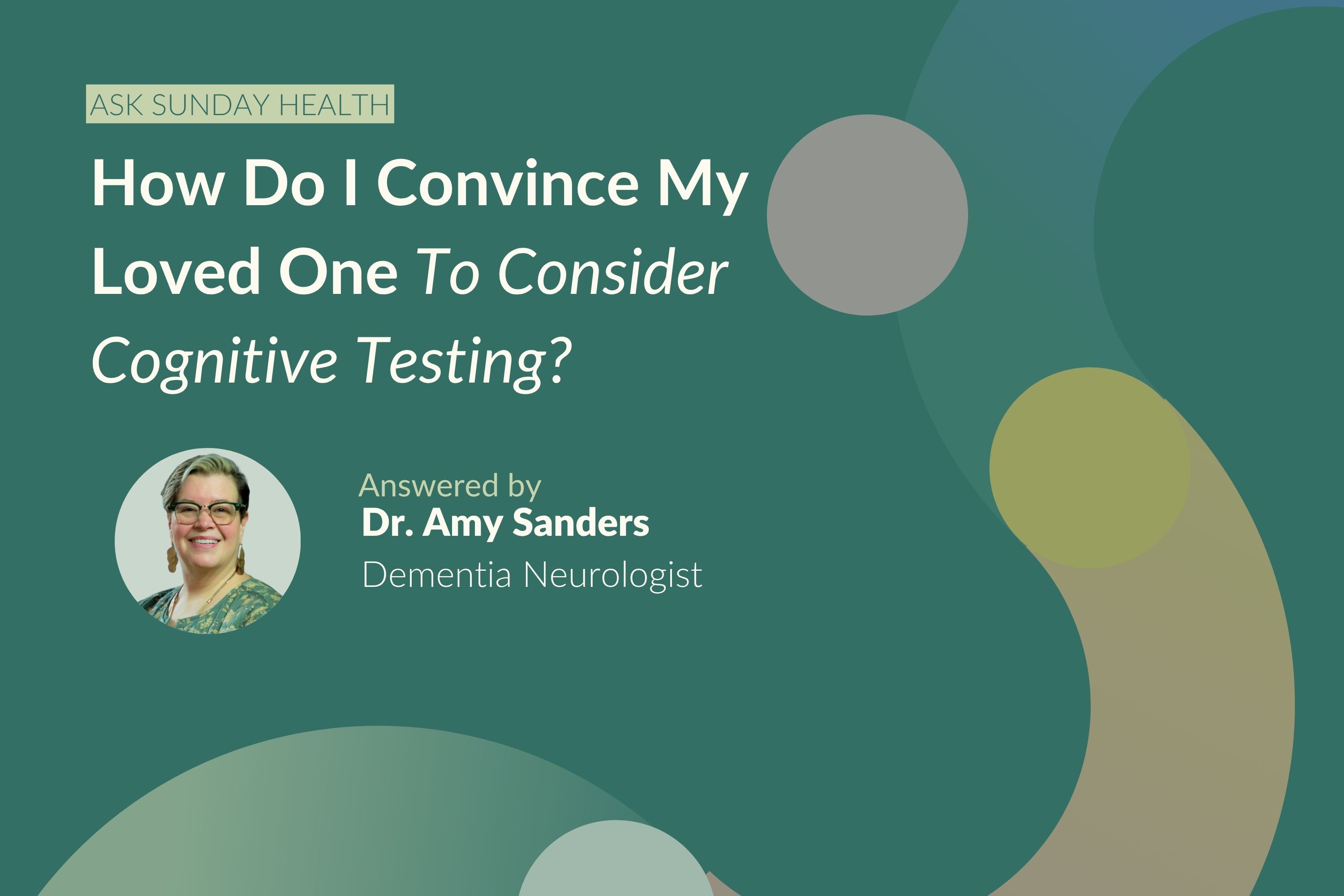How Do I Encourage My Parent, Spouse, or Friend To Get Their Memory Checked?

Key Takeaways
When discussing cognitive health concerns with a loved one, approach the conversation with empathy using "I" statements, emphasize the benefits of cognitive testing beyond diagnosis, offer to accompany them to appointments as support, and choose a private, distraction-free setting for the discussion.
Remember that persistence is crucial—if the first conversation doesn't go well, stay positive and try again, as your efforts could significantly improve your loved one's quality of life for years to come.
Transcript
Introduction
This one can be really tricky, so I'm here to offer you a few tips on how to approach it.
Tips for the Conversation
1. Start with Empathy
First, you might open the conversation from a position of empathy, and by that I mean using what are called "I" statements. For example, you might say:
"I have been concerned about you lately. I'm getting worried because sometimes you don't seem to remember when we've made plans together. Have you noticed anything like that?"
By raising the issue in this relatively non-threatening, empathetic way, you give your loved one a chance to talk about possible problems with their thinking. For all you know, they've been fretting and worrying about the same thing—they just haven't known how to bring it up.
2. Emphasize Testing Benefits
Second, you might want to emphasize the benefits of getting tested. Testing is not just about diagnosing problems. Testing allows us to establish a baseline that we can then refer to for years to come. It's the only way that we can uncover treatable conditions:
- Vitamin deficiencies
- Medication side effects
- Even the quality of sleep that the person got the night before they came in for testing
All of these things can have an impact on the clarity of one's thinking. Sometimes through testing, we even find something that is fully reversible.
3. Offer Support
Third, you might want to offer to go with your loved one to the appointment. Obviously, this shows that you support them through your actions, but you can also say to them:
"Look, I'm going to be with you, be there for you every step of the way. We will face whatever comes together."
And you'll be right there with them, so that's absolutely true.
4. Choose the Right Setting
Finally, you want to take care about how, where, and when you broach the topic:
- You don't want to do it at the holiday dinner table
- You do want to do it in a quiet setting where it can be just the two of you, one-on-one
- You want to turn off the television
- You certainly want to silence your cell phones
Persistence is Key
You may not get it right the first time. Don't give up. Indeed, don't even get discouraged. Remain calm, keep the dialogue open, and be positive. Your persistence on this topic could mean years—years—of good quality health and life, a real boon for your loved one. So don't give up.
Closing
If you want to learn more about cognitive thinking, cognitive health, brain testing, cognitive testing—all of the above, any of the above—come find us at Sunday Health. We are here for you and your loved ones every step of the way on this journey.



